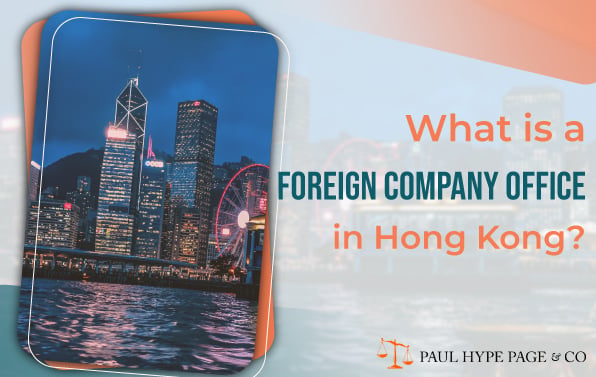Franchising serves as a pathway for overseas companies to expand their enterprises in Hong Kong. Besides that, it presents a favorable choice for budding entrepreneurs. Those opting to establish a franchise in Hong Kong benefit from an established and proven business framework, increasing the probability of reaching long-term goals.
What is Franchise?
Franchising represents a way to promote products and services. A typical franchising setup includes several key elements:
- The franchise owner company (franchisor) allows another party (franchisee) to use its name or brand.
- The franchise owner company maintains ongoing supervision and support towards the franchisee.
- The franchisee makes regular payments to the company.
Franchise Business Landscape in Hong Kong
The main benefit of opening a franchise business in Hong Kong is because of a simpler company formation process and more importantly, support from an existing company.
In Hong Kong, there aren’t specific laws just for franchises because it is a free market. So, if there is a disagreement about franchise agreements, regular common laws are used to solve the problem. However, there are laws that protect consumers which might apply to franchises:
- Consumer Goods Safety Ordinance: Entities engaged in the production, sale, or import of goods are obligated to ensure the safety of these items.
- Control of Exemption Clauses Ordinance: Commercial entities are prohibited from evading liabilities through contractual clauses.
- Sales of Goods Ordinance: Goods offered for sale must conform to quality standards, fulfill their intended purpose, and align with their advertised representations.
- Supply of Services (Implied Terms) Ordinance: Service providers must exhibit competence, adhere to reasonable timeframes, and maintain equitable pricing structures.
- Trade Descriptions Ordinance: Misrepresentation of goods and services through deceptive trade descriptions is forbidden.
- Unconscionable Contracts Ordinance: Contracts deemed unduly biased in favor of one party, to the detriment of consumers, can be remedied by the court.
- Competition Ordinance: Particularly relevant to franchise proprietors, this statute underscores the importance of safeguarding intellectual property belonging to franchisors. Activities involving the purchase or sale of goods must adhere to fair competition principles.
- Intellectual Property Laws: Intellectual Property laws like the Trade Marks Ordinance, Registered Designs Ordinance, and Patents Ordinance safeguards distinctive symbols and logos, prohibiting unauthorized replication. Copyright Ordinance: It ensures the protection of original creative works or novel inventions from unauthorized use.
Steps to Start a Franchise Business in Hong Kong
- Pre-contractual disclosure
Hong Kong does not have specific requirements for pre-contractual disclosure. However, the Hong Kong Franchise Association (HKFA) has established a Code of Ethics that outlines certain practices. According to this code, franchisors should provide accurate written information to potential franchisees well before the agreement is signed. Similarly, franchisees should disclose pertinent information to assist franchisors in their selection process.
You can access the code of ethics here. - Franchise Agreement
Franchising operates through agreements that establish operational models. A franchise agreement is made between an independent company, the franchise and a business owner that permits the use of its brand, the franchisor. Both parties adhere to their legal obligations. While franchise agreements are unique to the circumstances of both parties, they typically consist of the following:- The franchisor’s rights to maintain ongoing control over the franchise.
- The franchisee makes regular payments to the franchisor, often through royalties or a percentage of sales.
- Franchisee using the franchisor’s name or brand.
- This is an extension of rights to use the franchisor’s Trademark.
- It is to note that trademark laws are territorial in nature, applying only within specific countries. Consequently, expanding into different markets mandates the submission of distinct trademark applications.
- Formation of a Company / Company Incorporation
Setting up a franchise company in Hong Kong follows the standard incorporation procedures. This is similar to forming any other company in Hong Kong.
Read here to know about how to incorporate a company in Hong Kong.
Things to Note about Franchises in Hong Kong
Hong Kong operates under a straightforward tax system. Franchises are required to pay profits tax on income earned within Hong Kong, with no taxes imposed on capital gains, services, dividends, and goods. However, a ‘withholding tax’ is applied to income arising from the utilization of intellectual property rights within Hong Kong. Read more about corporate taxes prepared by us here.
Besides that, Hong Kong investors exhibit a discerning approach to franchise concepts, demonstrating keen responsiveness to emerging market trends and regional demand. Consumers in Hong Kong display a preference for upscale, inventive, and distinctive offerings. They are willing to patiently queue for extended periods to acquire niche brand products that hold international acclaim.
Hence, when contemplating the purchase of a franchise, it’s essential to determine your financial capacity for investment, whether you plan to hire staff, your desired income level, and your preferred lifestyle. The encouraging aspect is that there’s likely a franchise concept that aligns with, if not fully meets, your criteria. Whether you’re interested in a budget-friendly option or exploring higher-end opportunities, the market offers a variety of choices. White-collar franchise prospects are as abundant as those centered around food. Likewise, you can find both part-time and full-time franchise possibilities to suit your preferences.
Conclusion
Opening a franchise in Hong Kong is a promising opportunity for entrepreneurs. Despite the absence of specific franchise laws, the legal framework, consumer protection rules, and business-friendly environment provide a solid base. The process involves considering market trends, regulations, finances, and strategies. With a range of franchise options, from affordable to upscale, Hong Kong offers a suitable environment for success. Thorough research, expert guidance, and adaptation to local factors are essential for long-term achievement in this dynamic market.
FAQs
A franchise is a business arrangement in which a company (franchisor) allows another party (franchisee) to use its brand and business model in exchange for regular payments.
- Hong Kong offers a streamlined company formation process and support from an existing company.
- There are no specific franchise laws, but common laws protect consumers and businesses.
- Hong Kong has a straightforward tax system with no taxes on capital gains, services, dividends, or goods.
- Consumer Goods Safety Ordinance ensures product safety.
- Control of Exemption Clauses Ordinance prevents evasion of liabilities through contracts.
- Sales of Goods Ordinance sets quality standards for products.
- Supply of Services (Implied Terms) Ordinance regulates service providers.
- Trade Descriptions Ordinance prohibits deceptive trade practices.
- Unconscionable Contracts Ordinance addresses biased contracts.
- Competition Ordinance protects intellectual property and ensures fair competition.
- Intellectual Property Laws safeguard trademarks, designs, patents, and copyrights.
- Pre-contractual disclosure: Provide accurate information to potential franchisees.
- Franchise Agreement: Establish legal obligations and payment terms.
- Formation of a Company: Incorporate a company in Hong Kong.
While not mandatory, the Hong Kong Franchise Association (HKFA) has a Code of Ethics that encourages transparent practices between franchisors and franchisees.
Evaluate your financial capacity, staffing plans, income goals, and lifestyle preferences. Hong Kong consumers prefer upscale, innovative, and niche brand offerings, so consider market trends.





